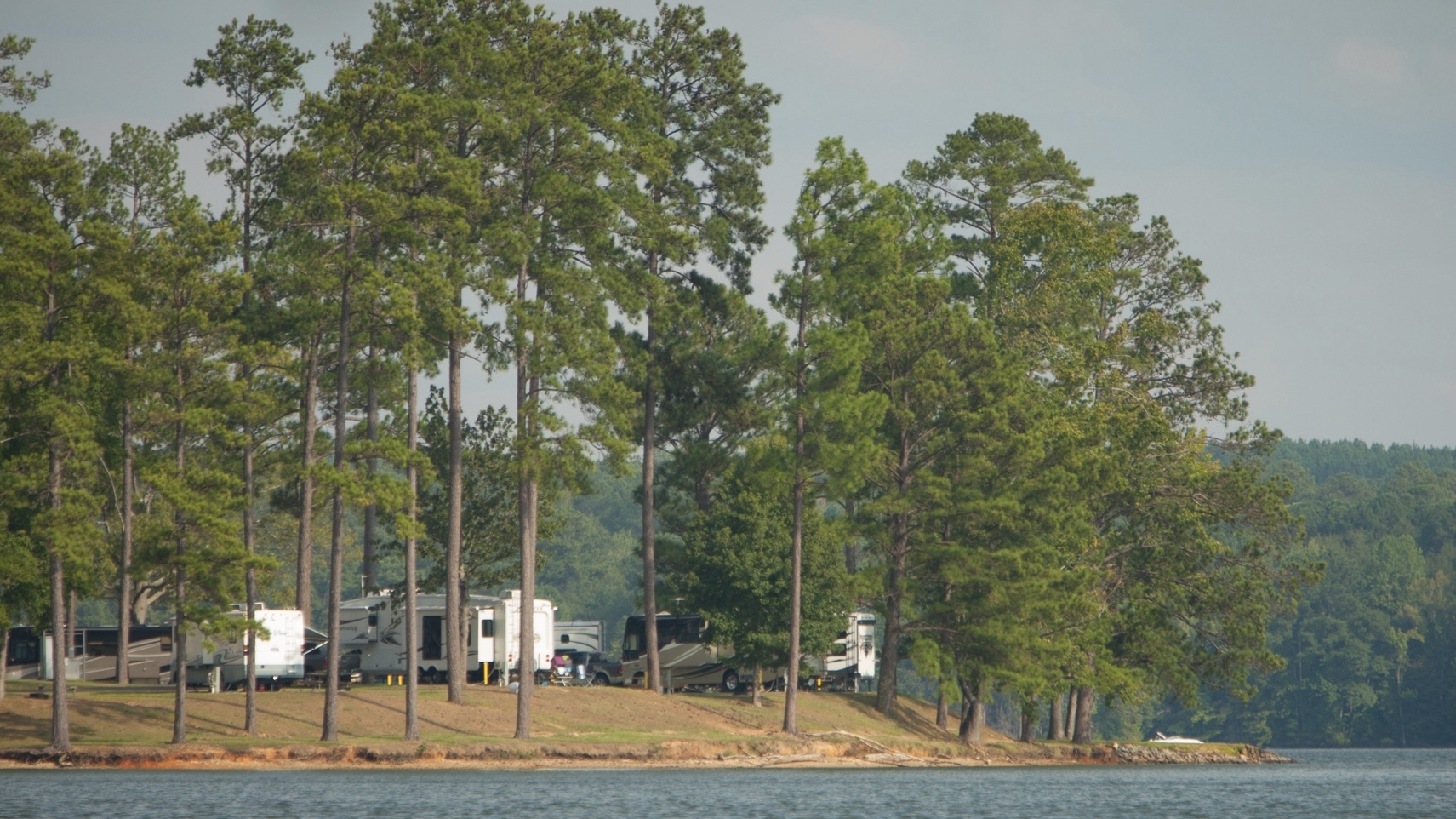|
Getting your Trinity Audio player ready...
|
The Alabama Recreational Trails Advisory Board discussed and voted on its 2024 grant proposals during their annual meeting on Dec. 17.
The board is a part of the Alabama Department of Economic and Community Affairs Recreational Trails Program. It is responsible for reviewing grant requests for the construction, maintenance and improvement of RTP trails, which are funded through the U.S. Department of Transportation, Federal Highway Administration. The board’s recommendations to approve or deny the use of RTP funding are then sent to ADECA Director Kenneth Boswell and Governor Kay Ivey for their final approval.
The board consists of members appointed for their knowledge of Alabama’s outdoor trails for both non-motorized and motorized recreational use.
RTP received a total of 11 project applications in 2024, coming out of the cities of Springville, Winfield, Haleyville, Mountain Brook, Homewood, Vestavia Hills, Silas and Cullman County.
The board focused primarily on the City of Homewood’s $375,741 proposal, which called for the construction of a pavilion at a pre-existent city-owned soccer field, adjacent to a trail system.
ADECA Federal Initiatives and Recreation Division Chief Crystal Talley said of the proposal, “I think we do need to tighten up on what is considered a trail and a trail project.” Talley went on to point out that while the proposal was adjacent to public trails, it did not include any trail expansion.
Talley said if the Homewood project was denied, it would allow all other project applications to be funded with roughly $10,000 carrying over to 2025.
Board member Debbie Quinn said of the proposal, “I’d much rather see a trail on the ground or some sort of surface on the ground, than to see a pavilion that’s truly situated right next to the soccer field.”
Board member Dr. Mark Richman, motioned to recommend the Governor and Boswell deny the proposal. Richman also motioned that following the two’s final decision, the board send the City of Homewood information on how to apply for a Land and Water Conservation Fund grant, which he and Talley expressed would be a better fit for the proposal’s specifications.
The board voted unanimously to pass Richman’s motion, meaning all other proposals are eligible to be funded, pending Ivey and Boswell’s approval.
Talley went on to ask the board for their insight regarding the proposal from Cullman county. The proposal requested $747,115 for the construction of new cabins to be rented by motorized trail customers.
Talley asked board member Steven Newton, the board’s designated representative from Alabama’s motorized trail community whether he believed the construction of cabins was an appropriate use of RTP funds.
Newton responded, “The number one problem with motorized [trails] across the nation is you want to go and stay several days, and there’s nothing around where you can stay unless you want to do primitive camping, which most of us do not.”
“The trailers that they have now are probably 15, 20 years old and they’re dilapidated and they’re losing business because of that,” said Newton of the location in Cullman County. “So, I like the idea because, you know, I don’t have a camper, so I depend on hotels or cabins and all that, so it just enhances the trail system as a whole.”
Talley overviewed RTP’s 2024 finances during the meeting.
The program received a total of $1,749,787 in funding. After paying the required one percent of funds required to be sent back to FHWA and the seven percent that must be put aside for program administration, RTP was left with roughly $1.6 million for funding new projects.
Talley said of these funds, 30 percent, or roughly $525,000, are required to be used for motorized trail projects, leaving about $1,085,000 for non-motorized trails.
Talley also led the board in a discussion of sidewalk projects.
Talley said, as of the meeting, RTP funds were not to be used for sidewalks or paths “along or adjacent to public roads or streets, unless the path or sidewalk is needed to complete a missing link between other recreational trails,” or if the advisory board otherwise deemed recommending the project’s approval necessary.
No sidewalk projects were submitted for the board’s approval in 2024, however, Talley said they have been prevalent in the past.
Quinn motioned to disbar sidewalk projects from consideration by the board, saying, “I think we don’t get a lot of dollars in this program, and you do always have the opportunity to go to [The Alabama Department of] Transportation and get sidewalk money.”
Quinn’s motion was passed unanimously.
ADECA Recreation Programs Supervisor, Latoya Edwards led the meeting in a discussion of Alabama’s 2024 State Comprehensive Recreation Plan. The SCORP’s purpose is to help guide the development of outdoor recreation across Alabama, and address issues regarding recreation in the state.
States must produce a SCORP every five years to be eligible to receive funds through the LWCF State Assistance Grant Program. The state’s current SCORP is set to expire in 2025.
Edwards announced that ADECA had hired CRO Planning and Design, a consulting firm focused on helping state and local agencies navigate projects on public lands, to help update the state’s 2021 SCORP.
The 2021 SCORP and an overview of the 2026 edition’s planning process can be found on ADECA’s website.




















































